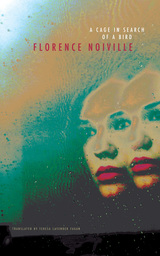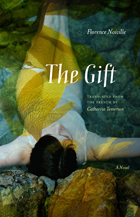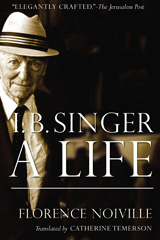
Laura Wilmote is a television journalist living in Paris. Her life couldn’t be better—a stimulating job, a loving boyfriend, interesting friends—until her phone rings in the middle of one night. It is C., an old school friend whom Laura recently helped find a job at the same television station: “My phone rang. I knew right away it was you.”
Thus begins the story of C.’s unrelenting, obsessive, incurable love/hatred of Laura. She is convinced that Laura shares her love, but cannot—or will not—admit it. C. begins to dress as Laura, to make her friends and family her own, and even succeeds in working alongside Laura on the unique program that is Laura’s signature achievement. The obsession escalates, yet is artfully hidden. It is Laura who is perceived as the aggressor at work, Laura who appears unwell, Laura who is losing it. Even Laura’s adoring boyfriend begins to question her. Laura seeks the counsel of a psychiatrist who diagnoses C. with De Clérambault syndrome—she is convinced that Laura is in love with her. And worse, the syndrome can only end in one of two ways: the death of the patient, or that of the object of the obsession.
A Cage in Search of a Bird is the gripping story of two women caught in the vise of a terrible delusion. Florence Noiville brilliantly narrates this story of obsession and one woman’s attempts to escape the irrational love of another—an inescapable, never-ending love, a love that can only end badly.

The narrator’s mother looms large in her psyche. Labeled “eccentric” or “Italian,” her mother in fact suffered from what was later found to be manic depression. Without understanding the disease, the family treated the unpredictable ups and downs of her condition as they struck. During periods of paralyzing depression she was hospitalized, and the family felt abandoned. During periods of manic productivity and overdrive, she was a dedicated pharmacist, an exemplary homemaker, and an unusually knowledgeable gardener.
This sparse novel draws the portrait of a grand and unforgettable lady, loving and unable to love at once. Her bequest is as much a material one as it is an emotional one, and, the author surmises as she glances at her own daughters, a genetic one.

In this vivid biography, Florence Noiville offers a glimpse into the world of this much-loved but persistently elusive writer: Isaac Bashevis Singer. Singer (1904–91) is generally recognized as the most popular Yiddish writer of the twentieth century. His widely translated body of work, for which he received the Nobel Prize in Literature in 1978, is beloved around the world. But although Singer was a very public and outgoing figure, much about his personal life remains unknown.
Singer was greatly influenced by his early years in Poland, with his rabbi father and rationalist, secular mother. His interest in themes of faith and dilemma stem directly from this set of conflicts; he bounced back and forth between revering and fighting orthodoxy. This was not the only paradox in his life, however: this man, who wrote many successful children’s books, had abandoned his first wife and only son in Poland as the Nazis began to sweep across Europe. His novels and stories are recognized for their mystical, folkloric tone and his public image was that of a grandfather or uncle; but he was wracked with self-doubt, a womanizer, and, as Noiville writes, a “modern virtuoso of anguish, inhibition, and fiasco.”
Noiville speaks to these and other paradoxes surrounding her subject, drawing on letters, personal stories, Singer’s own autobiographies, and interviews with friends, family, and publishing contemporaries. She travels as he did, from Poland to New York to Florida, tracing his journey from penniless immigrant to Nobel laureate. By pursuing Singer’s public and private past, she rebuilds his story and the story of the world he wrote from: a Yiddish world, a Poland removed from history by Nazi Germany.
READERS
Browse our collection.
PUBLISHERS
See BiblioVault's publisher services.
STUDENT SERVICES
Files for college accessibility offices.
UChicago Accessibility Resources
home | accessibility | search | about | contact us
BiblioVault ® 2001 - 2024
The University of Chicago Press









